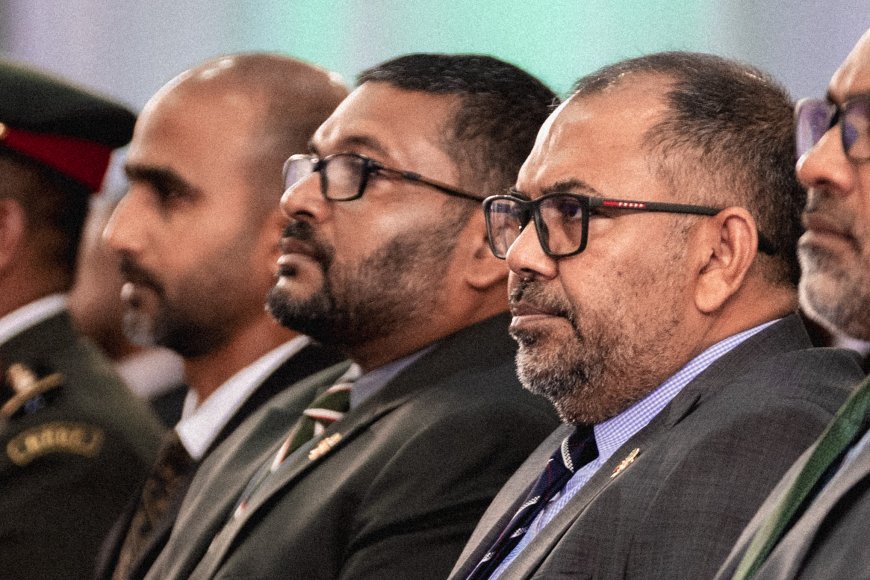Maldivian Ministers Defend Silencing of Journalists, Call It ‘Accountability

Maldivian ministers have taken to X in a coordinated push to defend the controversial Media and Broadcasting Regulation Bill, rejecting accusations that the new law is designed to silence journalists and curtail democratic freedoms.
The bill, passed by parliament this week despite protests by journalists and civil society, grants sweeping powers to a government-appointed commission to regulate media outlets, issue licenses, and impose penalties including suspensions and fines. Critics, including the Maldives Journalists Association (MJA) and international watchdogs, argue it amounts to a direct assault on free expression.
Ministers Strike Back Online
Foreign Minister Abdulla Khaleel claimed the legislation “protects freedom of expression, not limits it,” stressing that personal social media accounts would not fall under regulation. He described criticism of the bill as “deliberate misinterpretation” aimed at sowing public fear.
The Maldives Media and Broadcasting Regulation Bill unifies oversight under an independent commission, with majority members chosen directly by registered media entities themselves, ensuring transparency and independence from executive control. It modernizes registration, sets… — Abdulla Khaleel (@abkhaleel) September 17, 2025
Information Minister Ibrahim “Asward” Waheed, a former journalist, defended the bill as “a step towards accountability and professionalism” in media. He acknowledged “room for improvements,” but dismissed what he called “false claims that the bill will shut down social media voices.”
Defense Minister Mohamed Ghassan Maumoon argued the law was debated and amended through proper parliamentary process, saying media groups would have representation in the new regulatory body.
The bill went through proper parliamentary procedure with committee review, as stipulated by law. Media organizations have direct representation. — Mohamed Ghassan Maumoon (@mgmaumoon) September 17, 2025
Health Minister Abdulla Nazim Ibrahim struck a sharper tone, declaring, “This is not the end of press freedom. It is the end of impunity.”
Home Minister Ali Ihusan echoed that sentiment, saying the law “sets standards for responsible journalism” and comparing it favorably to what he called “rushed and flawed reforms” under past governments.
Journalists and rights groups say these reassurances ring hollow. Provisions regulating undefined “electronic media” and clauses tied to “national security” and “legitimate government” are seen as deliberately vague, opening the door to political censorship.
The MJA described the government’s X campaign as “damage control,” pointing out that over 150 journalists had formally petitioned against the bill before it was forced through parliament. Protests outside the Majlis were met with police crackdowns, further fueling public outrage.
International organizations including Reporters Without Borders (RSF), the Committee to Protect Journalists (CPJ), and the International Federation of Journalists (IFJ) have all called for the immediate withdrawal of the bill, warning that it contradicts democratic principles and Maldives’ commitments under international law.
The Battle Moves Beyond Parliament
As ministers seek to justify the law online, regional solidarity is growing. On Thursday, Sri Lankan journalists will stage a protest outside the Maldivian High Commission in Colombo, standing with their Maldivian colleagues against what they describe as “repression in disguise.”
For now, the government insists the bill is here to stay. But with journalists vowing to continue resistance both on the streets and in court, the clash between press freedom and state control in the Maldives is far from over.
What's Your Reaction?
 Like
0
Like
0
 Dislike
0
Dislike
0
 Love
0
Love
0
 Funny
0
Funny
0













